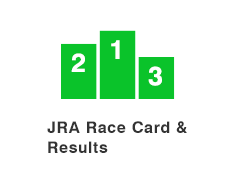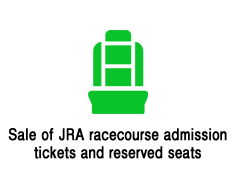As of January 2025
Vaccination requisite is based on the animal health requirement agreed upon between the government authorities of each country and the Japanese Government. Export quarantine requirements prior to the departure from the country, should also be ascertained in advance from your respective Government Departments and you should follow their instructions for the necessary vaccinations since certain countries require particular re-entry procedures.
Although the JRA will be pleased to respond to any inquiries you might have on this topic, please also ask your country’s government for the latest information.
Equine Viral Arteritis Vaccination
If you wish for your horse to remain in Japan for breeding purposes, In the case whereby a horse tests positive for antibodies of Equine Viral Arteritis (EVA) after participating in the horserace, that horse will not be able to remain in Japan for breeding. Therefore, please DO NOT vaccinate against EVA.
West Nile Virus (WNV) Vaccination
This is especially important for North American horses, and European horses planning to come to Japan after running in North America. The conditions for each of these horses are different based on the areas which they have visited or transited, the length of these visits and so forth. Please take a look at the following requirements.
Any horse which, during the last 60 days, has been in an area which has had an outbreak of West Nile Virus (WNV), must be vaccinated against that virus, or must be certified under the conditions set forth by the Government of Japan, prior to entering Japan.
Japanese Encephalitis Virus Vaccination
Aside from the requirement established by government, the JRA strongly recommends that the overseas trained horses which participate in the races held in our jurisdiction from July to October to be vaccinated against Japanese Encephalitis (JE) virus with an acceptable inactivated vaccine before coming to Japan. The JRA does not take any responsibility for any horses coming to Japan during this period without being inoculated with the necessary vaccine protection from JE. Although it is also possible for the JRA to provide the vaccine required for inoculation prior to the horse coming to Japan, owners should ask the respective authorities in their own country about import procedures and permission for use of the vaccine overseas.
Equine Rhinopneumonitis Vaccination
The international racehorses have to be vaccinated against equine rhinopneumonitis (EHV-1) between 14 and 180 days before shipment to Japan either with a primary course or a booster and as per manufacturer's instructions.
Equine Influenza Vaccination
As above the animal health requirement agreed upon between the government authorities of each country and the Japanese Government should also be ascertained in advance, reference example of requirements are given below. (As of April 2022)
-France, Germany, Ireland, Italy, the United Kingdom, the United States of America, Canada, Australia, Hong Kong, the United Arab Emirates, Qatar, Singapore, and Republic of Korea:
The international racehorse must be vaccinated against Equine influenza between 21 and 90 days before shipment to Japan either with a primary course or a booster.
-Australia:
The international racehorse exported to Japan must be vaccinated against Equine influenza on two occasions at an interval of 3 to 6 weeks (or once in the case of booster), and as per manufacturer’s instructions, within 6 months immediately prior to shipment to Japan.
It is important that all vaccinations a horse has been administered must be recorded in its passport. The JRA’s veterinarian judges whether a horse is vaccinated or not only through the description in the passport.
Therefore, please ensure that all the records are completely written in the passport especially immediately after vaccination.
Equine Influenza Test
As follows:
All horses should have a nasopharyngeal swab taken within 5 days prior to export and the sample should be tested using an RT-PCR or antigen detection test (e.g., Espline) .
Racehorses to remain in Japan after participating in the international horserace in Japan
If you wish for your horse to remain in Japan for breeding purposes, you must consult with JRA and the transport company as soon as possible. In this case, Contagious Equine Metritis (CEM) and other tests will be conducted after participating in the horse race. Duties will not be refunded.















